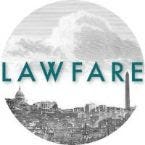Compiled by Caroline Cornett
Articles
The D.C. Circuit Court's TikTok Ban Decision, Explained
Niharika Vattikonda and Benjamin Kelley outlined the U.S. Court of Appeals for the District of Columbia Circuit’s ruling, which found that the TikTok divest-or-ban requirement of the Protecting Americans from Foreign Adversary Controlled Applications Act does not violate the First Amendment and is sufficiently narrow to fulfill the government’s national security interests.
On Dec. 6, 2024, the U.S. Court of Appeals for the District of Columbia Circuit upheld the constitutionality of the TikTok divest-or-ban requirement enacted in the Protecting Americans from Foreign Adversary Controlled Applications Act. The decision affirmed that the act does not violate the First Amendment and is sufficiently narrow to fulfill the government’s interest in preventing foreign influence on TikTok. In its decision, the court acknowledged that the ruling would create a potential disruption to free speech and expression on the internet but emphasized that other social media platforms exist for such expressive activity and can mitigate the burden on the First Amendment rights of content creators.
Rogue AI Moves Three Steps Closer
Peter N. Salib discussed the threat of “rogue AI” amid the release of OpenAI’s most recent model, o3, and two empirical evaluations revealing that AI systems sometimes actively resist human control.
A sufficiently capable AI with bad goals would almost certainly resist attempts to modify its goals in exactly the same way that the studied AIs did. What matters here is not the particular content of the goal. Rather, what matters is that the system has been optimized to pursue the goal, and goal modification runs directly contrary to that optimization. The best way to get direct empirical evidence of this would be to intentionally create an “evil” version of a frontier AI model and run scheming and alignment faking evaluations on it. Of course, as AIs become more capable, the wisdom of creating malicious versions of them to see whether those versions can escape our control becomes questionable.
Podcasts
Lawfare Daily: Orin Kerr on the Digital Fourth Amendment: Jack Goldsmith sat down with Orin Kerr to discuss his new book, “The Digital Fourth Amendment: Privacy and Policing in Our Online World.” They talked about Kerr’s Equilibrium Adjustment Theory, how technological advances have changed courts’ interpretations of the Fourth Amendment, and more.
Videos & Webinars
On Jan. 10 at 3 p.m. ET, Lawfare Tarbell Fellow in Artificial Intelligence Kevin Frazier will talk to Lawfare Senior Editor Alan Rozenshtein and Senior Staff Attorney at the Knight Institute Ramya Krishnan about the Supreme Court oral arguments over the legislation passed by Congress that bans TikTok unless its parent company ByteDance divests from the app. If you would like to be able to submit questions to the panelists and watch the livestream without ads, become a material supporter of Lawfare on Substack or Patreon. It will be livestreamed on YouTube for all other viewers. Find the livestream here. If you can’t attend the live event, the recording will be available immediately afterward on Lawfare’s YouTube channel or later on the Lawfare Podcast feed.
Support Lawfare
Follow us on Twitter, Facebook, YouTube, and LinkedIn. Become a material supporter on Patreon and Substack or make a one-time tax-deductible contribution on Givebutter. Sign up to receive Lawfare in your inbox. Check out relevant job openings on our Job Board.




